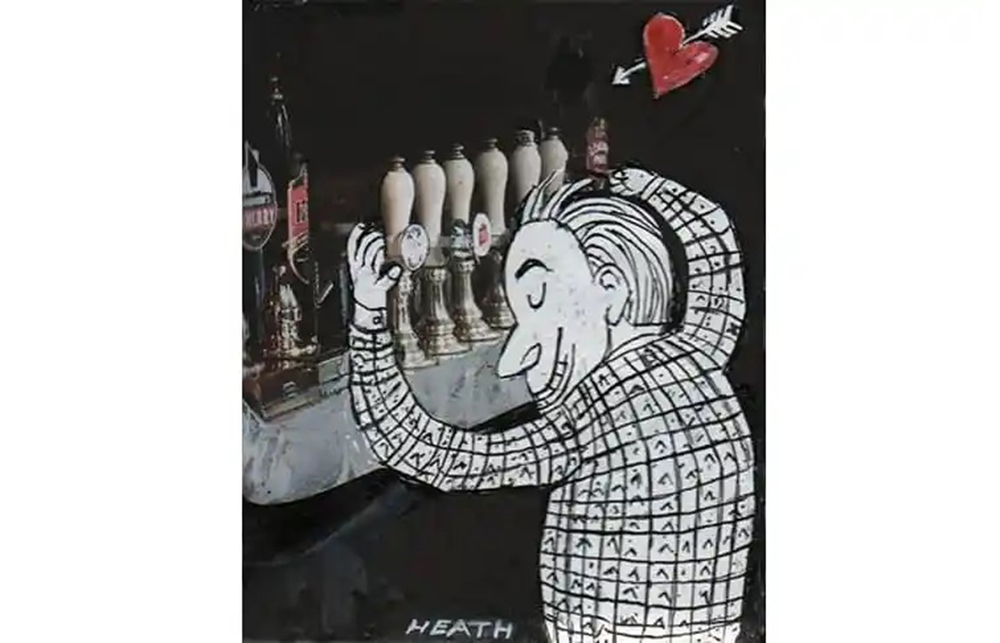Europe, I’m told, is entering the age of the ‘sober-curious’. Curiosity is a wonderful thing; why, then, did hearing this make me want to drink whisky until I talk in tongues and pass out? I’ve had such a long and varied relationship with alcohol since we met when I was a shy provincial child. It’s been my naughty secret (12-16), partner in crime (twenties), dangerous obsession (thirties/forties), toxic bestie (fifties) – until, somehow, now I’m almost 64, it’s ended up as casual restaurant date, always welcome but never needed. I’ve done some dumb things on alcohol, but I’ll always believe that it gave me more than it took from me. Because of this, I feel defensive of it when I hear people dissing it.
A warning has been issued by the French Vin et Société claiming that wine consumption in France is set to drop 60 per cent over the next ten years, after falling from an average of 120 litres a person a year in 1960 to 40 litres in 2020. This is predicted to lead to ‘massive and historic’ cuts in the wine sector, which employs half a million people.
That makes me sad. It was always such a comfort to know that French children were quaffing the Côtes-du-Rhône when we were still knocking back Ribena.
The French like to mock us for our binge-drinking but it wasn’t until 1956 that the serving of alcoholic drinks in French schools to children under 14 was banned; and only in 1981 was the sale of alcoholic drinks in schools banned completely. French kids were apparently encouraged to drink wine in school canteens thanks to the belief that it kept disease at bay. Parents often added half a litre of wine to schoolbags, or so I heard.
When the French get snooty about British alcoholism I like to think of the case brought by employees of Pernod Ricard who complained of the pressure to drink ceaselessly while at work. Three-day sprees, alcoholic comas and hallucinations were common complaints. One woman told Le Parisien: ‘People would say “What are you complaining about? You’re being paid to party.”’ Gives a few merry teenagers on a Saturday night out in Newcastle a bit of perspective.
If the French can go off booze, so can we. The fact that around 400 pubs closed in England and Wales alone last year is a bad sign and a sad one. Britain is the home of legendary boozing heroes, where not just the best actors and sportsmen were die-hard dipsomaniacs but even the most slender and elegant model of the 20th century – Kate Moss – was known as ‘The Tank’ due to her epic capacity for alcohol.
It’s true, I’ve taken my love for alcohol too far. Running out of vodka one night, I persuaded my guests to try instead Donna Karan’s Be Delicious – an appropriately named perfume, rather refreshing with ice, a slice and a spritz of soda. In 2017 I did an Amsterdam Diary in this magazine which must be the grimmest essay I ever wrote: ‘I drank myself into a stupor by noon, when I took to my bed, demanding Daniel have sex with prostitutes and sulking monstrously when he refused. For two days, my husband was my carer, while I cared only for alcohol.’ Six years on, it’s like reading about a sad stranger.
But the answer for me wasn’t to give up booze, just to change the location – to the pub. I only really got to enjoy the pub experience a couple of years before lockdown, and I’m very much enjoying it again now. Looking around at my fellow humans, where status means nothing and a cheery greeting from the bartender is an equal benediction to all, it’s as if I can experience a kind of socialism I’ve missed since Comrade Corbyn poisoned the well.
Though I don’t want to be a staggering drunk again, I still feel that getting drunk with someone new is the best trust game ever invented. And I believe that if we start to see even moderate public drunkenness as an unacceptable social crime, we are not becoming curious but actually shutting down our curiosity and natural human desire to bond with strangers.






Comments